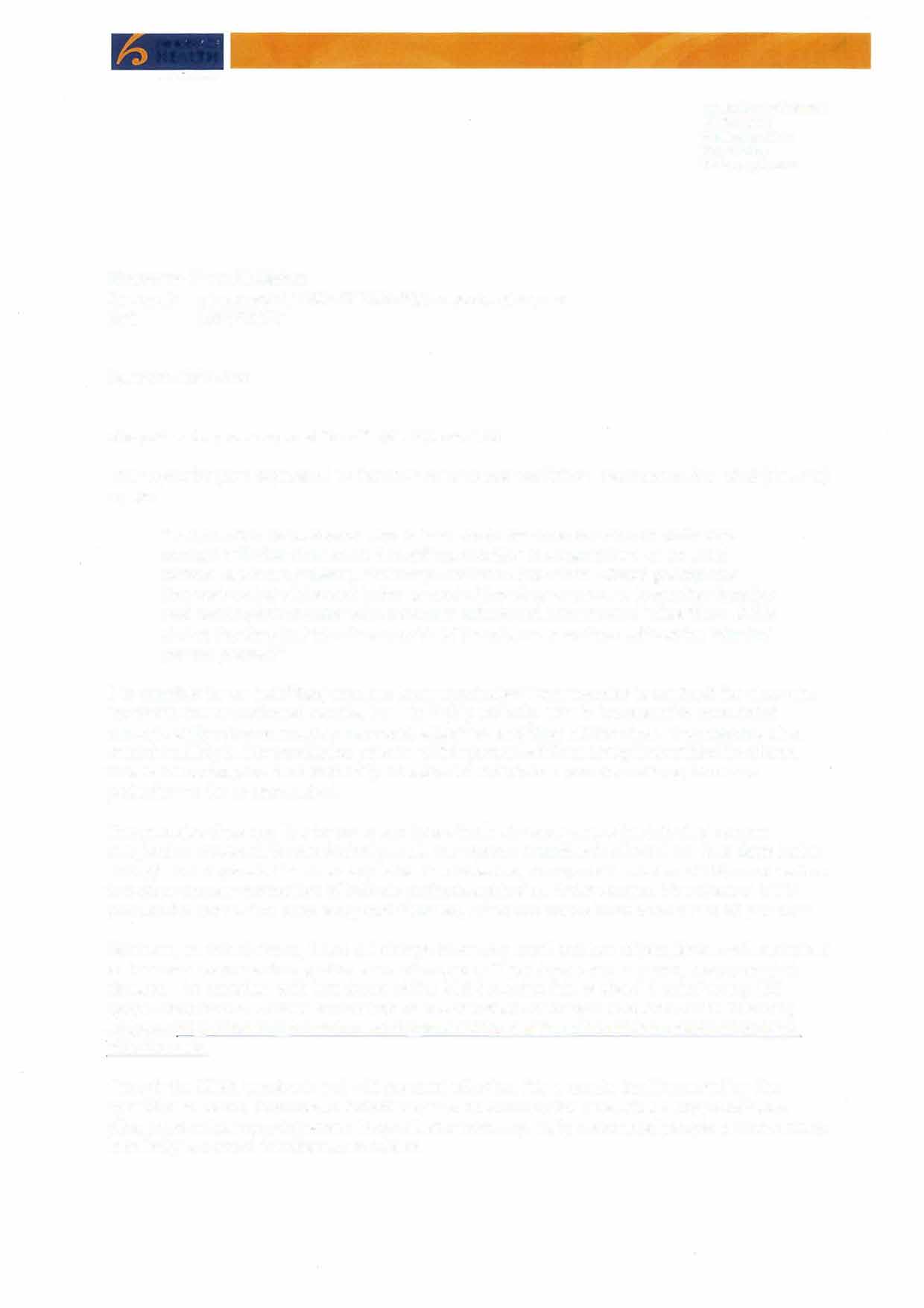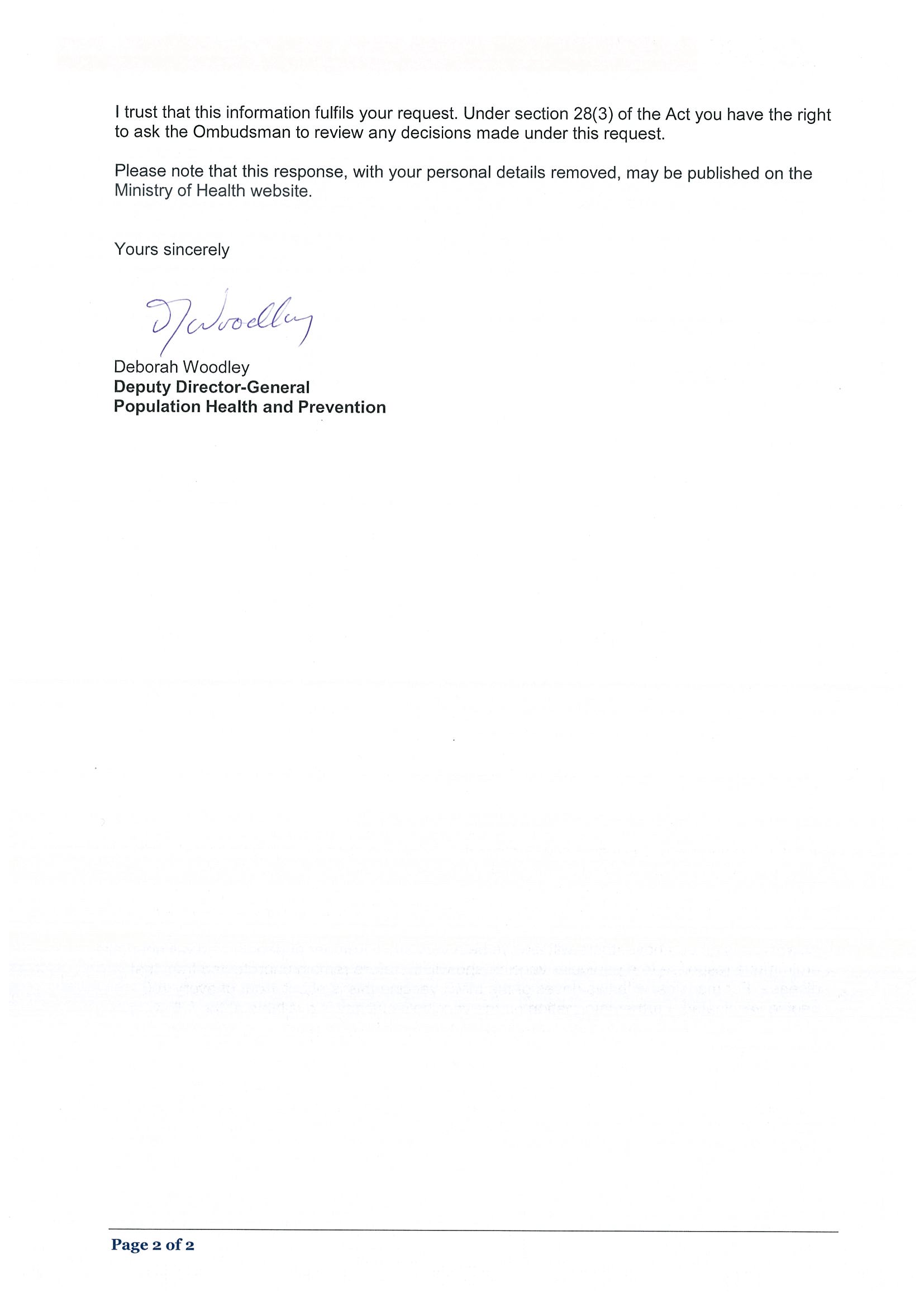

\\l�l,11t\ 01
:"r..l' ""'b
HEALTH �:-. ...ti
MANATU IIAUOM
133 Molesworth Street
PO Box5013
Wellington 6140
New Zealand
T+64 4 496 2000
Shareena-Miree McMahon
By email: [FYI request #11486 email]
Ref:
H201909201
Dear Ms McMahon
Response to your request for official information
Thank you for your request of 17 October 2019 under the Official Information Act 1982 (the Act)
on for:
"Is it possible for someone who is immune to the measles virus to come into
contact with that virus while it is still contractible in areas where an infected
person has been present, and carry that virus elsewhere without getting sick
themselves but still assist in the spread of the virus by moving to another location
and coming into contact with someone who is not immune and infect them if it is
during the time that the virus would still be alive on a surface without the infected
person present"
It is possible for an individual who has been vaccinated from measles to contract the virus and
transmit it to unvaccinated people, but it is highly unlikely. This is because the vaccinated
person's antibodies completely surround, attach to, and then kill the virus. The measles virus
cannot multiply in the vaccinated person, which prevents it from being transmitted to others.
This is the concept of herd immunity. Vaccinated individuals provide a strong barrier of
protection to the unvaccinated.
The measles virus can live for up to two hours in an airspace where the infected person
coughed or sneezed. Unvaccinated people can spread measles to others from four days before
through four days after the rash appears. The measles, mumps and rubella (MMR) vaccine is a
two-dose vaccine series that effectively protects against all three viruses. One dose of MMR
protects 95 per cent of people against measles, while two doses increases this to 99 per cent.
However, as noted above, there will always be a very small number of people who will not make
an immune response to a particular vaccine and will therefore remain unprotected from that
disease. For measles, with two doses of the MMR vaccine this is about 1 out of every 100
people vaccinated. Further information on the vaccine's efficacy is available at the following
address: https://health.govt.nz/our-work/preventative-health-wellness/immunisation/vaccine
effectiveness.
Though the MMR vaccine is not 100 per cent effective, it is a crucial tool in controlling the
spread of measles. Immunised individuals who do contract the virus after being vaccinated
often have milder symptoms and have a faster recovery. Fully vaccinated people are also much
less likely to spread the disease to others.



